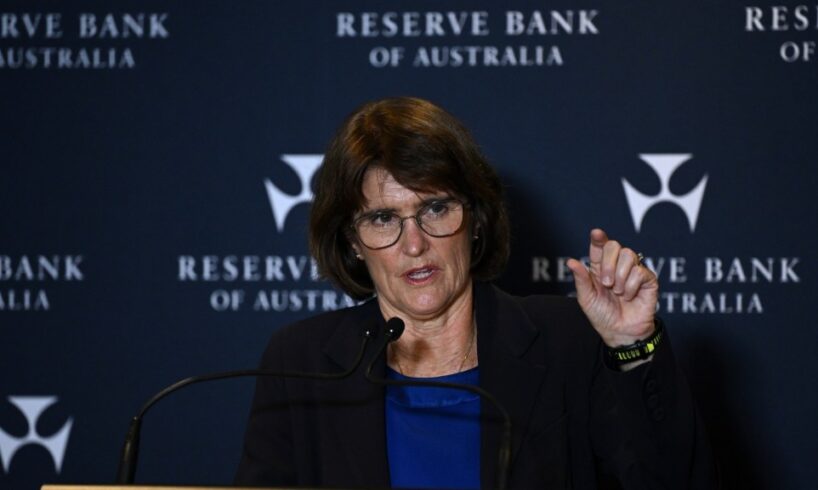
The Reserve Bank of Australia’s (RBA) proposal to ban credit and debit card surcharges has left some small business groups cold, as SME advocates question how merchants will recoup the costs currently passed on to consumers.
The RBA on Tuesday recommended surcharges covering the cost of accepting debit and credit card transactions be banned, saving Australian consumers an estimated $1.2 billion a year.
Related Article Block Placeholder
Article ID: 319877
Surcharging rules — designed to send a price signal to shoppers, encouraging them to pick lower-cost payment options — are no longer fit for purpose, the RBA found.
The RBA recognises banning surcharges without other reforms would leave businesses, including some of Australia’s small traders, on the hook for extra costs.
To make up some of the difference, the RBA proposes new and updated caps on interchange fees — which a merchant’s payment service provider (PSP) pays the customer’s card-issuing bank when a card transaction takes place.
This would lower the wholesale cost of card payment acceptance, and the RBA expects the PSP would pass the full financial benefits to merchants.
Making the cost of different payment types more apparent to merchants would also encourage them to find better deals, further lowering their costs, the RBA added.
Allowing small businesses to surcharge customers while imposing a ban for larger merchants would be too difficult, according to the paper.
Concerns from travel agents to cafes
The RBA says just 10% of small merchants choose to surcharge the cost of payments, leaving the vast majority of businesses better off under the proposed plan.
But some small business groups argue the expectation that PSPs pass on cost savings to merchants is not enough, and that more protections should come into place before any surcharge ban takes place.
Amanda Rixon, membership manager at the Australian Travel Industry Association, said the planned reforms could lump travel agents with costs they could once pass to consumers.
“Without equalisation of interchange fees and unfair scheme rules before implementation, many businesses won’t be able to absorb the costs and will be forced to reduce services or increase prices elsewhere where they can,” she said.
Related Article Block Placeholder
Article ID: 314553
Credit card payments are especially common in the travel sector, as many cards accrue bonus points that customers can redeem for flights and accommodation.
“This change must not proceed without comprehensive reform to ensure fairness for businesses and choice for Australians,” Rixon added.
“Nobody wants a situation where credit cards are no longer accepted.”
In its own statement, the Australian Restaurant & Cafe Association said the proposal, as structured, would only force businesses to raise their menu prices — leaving customers no better off in the long run.
“Restaurants aren’t banks,” wrote CEO Wes Lambert.
“We simply can’t absorb thousands in hidden merchant fees.”
Council of Small Business Organisations Australia (COSBOA) chair Matthew Addison declared the RBA paper a “mixed bag” for merchants.
The paper says small businesses would benefit from lower caps in interchange fees, noting they generally pay more per transaction than larger competitors, which can negotiate lower volume rates.
COSBOA supports measures that would expose small merchants to interchange fees level as those paid by big businesses.
However, Addison said the plan, as written, would still impose costs to small businesses.
“The reality is that these fees will still be paid, just not disclosed,” he said.
“That cost will be baked into the price of coffee, groceries, and services across the country.”
The small business lobby also supports mandatory least-cost routing (LCR) — where debit payments made on dual debit-credit cards are automatically funnelled through the lower-cost network, saving merchants on fees.
But the RBA stopped short of calling for mandatory LCR.
“Mandating dynamic LCR would involve substantial investment costs for acquirers that would flow through to
higher costs for merchants,” it wrote.
“Instead, competitive pressure may be better suited to drive the development of more sophisticated routing, with some PSPs seeking to differentiate themselves on their routing capabilities.”
“If the RBA and government are serious about helping small business, the focus should be on increasing competition, enforcing least-cost routing, and regulating payment providers, not restricting merchant rights,” said Addison.
Fintech and payments sector considers proposal
Australia’s fintech sector is also digesting the RBA proposal.
Fintech Australia, which counts homegrown point-of-sale providers like Zeller among its members, argues interchange fees should not change in ways that hurt innovative fintechs.
“Interchange should not be viewed simply as a cost to an acquirer/merchant which, therefore, needs to be managed or regulated to the lowest possible level,” wrote FinTech Australia CEO Rehan D’Almeida.
Any proposals adopted should not exclude newer players to the benefit of existing finance sector players, wrote D’Almeida.
“As a result, a more concentrated and less competitive payments sector cannot become to ultimate result of these reforms.”
Card scheme giant Visa itself is opposed to the wholesale reduction of interchange fees, saying those fees fund fraud prevention and payments innovation.
“Visa remains committed to working constructively with the RBA, government, and industry to ensure that consumers and business receive the full benefits of secure and innovative payments for all Australians,” wrote Alan Machet, group country manager for Visa Oceania.
The RBA will hold consultations for six weeks and intends to share its final position on surcharging by the end of 2025.





